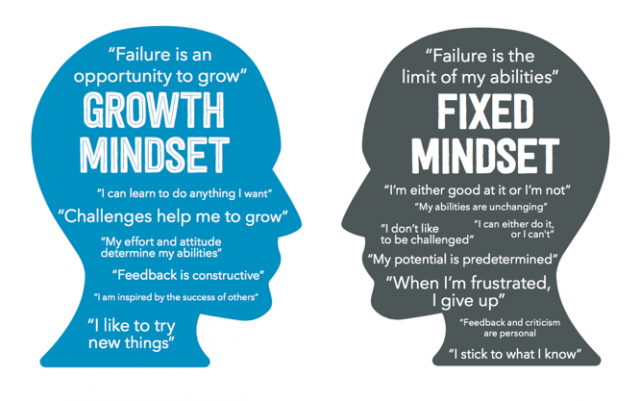Balancing Time, Money, and Strengths: Navigating Work-Life Harmony for Entrepreneurs
In the pursuit of entrepreneurship, time becomes an invaluable asset intertwined with the management of resources, particularly money. Because most individuals are unaware of the disadvantages of lacking organization in their work and personal lives, many may not prioritize establishing a balanced approach to time management.

Entrepreneurs, the secret sauce behind your success might just be hidden within the fields of time management! Picture this: your work and personal life in perfect sync, stress levels down, decisions made with crystal clarity, and your business thriving while your well-being blossoms. But beware! The mismanagement of time leads to a haunting cascade of unfinished tasks, halted projects, and stunted business growth, plunging you into a whirlpool of stress and fatigue. Rushed decisions under the ticking clock? They could haunt your growth and slam the door on potential opportunities. Now, imagine this chaos seeping into your personal space, straining relationships and leaving you yearning for more. Your health? It takes a hit. But don’t worry! Effective time management isn’t just a buzzword; it’s the key to unlocking a harmonious, fulfilling life. Dive into strategies like goal setting, delegation, and creating that perfect work-life balance. They aren’t just significant; they’re your tool to transform things in favor of a life where success isn’t only a flourishing business but a mix of accomplishment and personal happiness.
In this blog you will learn about the best methods that entrepreneurs use to manage their time and to find the most effective way to balance work and life. In addition, a prominent figure in entrepreneurial circles, Tim Ferriss, has often highlighted the significance of time management, strengths assessment, and achieving work-life balance. You can read more about that in one of his books ‘’The 4-Hour Workweek’’.
Several books on time management specifically tailored for entrepreneurs offer valuable insights and strategies. Here are a few highly recommended ones:
1. ‘’The 4-Hour Workweek” by Tim Ferriss: This book presents unconventional strategies to maximize efficiency and productivity while minimizing work hours, focusing on the Pareto Principle (80/20 rule) to achieve more with less time.
2. ‘’Getting Things Done: The Art of Stress-Free Productivity” by David Allen: Known as GTD, this book provides a systematic approach to managing tasks, organizing priorities, and achieving a stress-free state through efficient time management.
3. “Deep Work: Rules for Focused Success in a Distracted World” by Cal Newport: This book explores the concept of deep work, emphasizing the importance of undistracted focus to produce high-quality work in a shorter time span.
4. “Eat That Frog!: 21 Great Ways to Stop Procrastinating and Get More Done in Less Time” by Brian Tracy: Offering practical advice, this book helps entrepreneurs tackle procrastination and manage time effectively by prioritizing important tasks.
5. “The Power of Full Engagement: Managing Energy, Not Time, Is the Key to High Performance and Personal Renewal” by Jim Loehr and Tony Schwartz: Focusing on managing energy rather than time, this book provides strategies to optimize performance by enhancing physical, emotional, mental, and spiritual energy levels.
These books offer diverse perspectives on time management for entrepreneurs and are highly regarded for their practical advice and actionable strategies. Depending on individual preferences and requirements, any of these books can be a valuable resource for enhancing time management skills in entrepreneurship.
Understanding the Time Value of Money: ‘’Time is Money’’

The concept of the time value of money emphasizes that money available today is worth more than the same amount in the future due to its potential earning capacity. Entrepreneurs grasp the significance of utilizing money wisely, often seeking the best investment opportunities to maximize returns.
We have all heard of the phrase “time is money” essentially emphasizes the value of time in relation to the concept of money. It signifies that time is a valuable resource that should be utilized effectively because it has a financial equivalent or value.
The phrase originated from Benjamin Franklin’s essay “Advice to a Young Tradesman” in 1748. The idea behind “time is money” is that time, like money, is a valuable commodity. Just as we spend money to acquire goods or services, we “spend” time to accomplish tasks, work, or engage in activities.
In business, the concept implies that time wasted equates to a loss of potential earnings or opportunities. It underscores the importance of efficiency, productivity, and effective time management. For entrepreneurs and professionals, every moment spent unproductively or inefficiently represents a missed opportunity to generate income or achieve goals.
Therefore, the phrase serves as a reminder to individuals to use their time wisely, prioritize tasks, and focus on activities that yield the most significant returns or outcomes. Managing time effectively can lead to increased productivity, better decision-making, and ultimately, better financial outcomes.
Assessing Strengths and Weaknesses
Understanding personal strengths and weaknesses is pivotal. Entrepreneurs recognize their key strengths and use them to their advantage while acknowledging weaknesses to either improve upon or delegate tasks that require different skill sets.
Here is a list of strengths and weaknesses in work life habits and time management of an entrepreneur:
Strengths in Work Life Habits and Time Management:
1. Organizational Skills: Entrepreneurs often possess strong organizational abilities, aiding in task prioritization and time allocation.
2. Adaptability: They can swiftly adjust plans and schedules to accommodate changes in their business environment.
3. Decision-making: Entrepreneurs tend to make quick yet thoughtful decisions, optimizing time utilization.
4. Goal Orientation: Focused on objectives, they efficiently structure their time around achieving targets.
5. Efficiency: They excel in optimizing processes, finding ways to accomplish tasks more effectively.
Weaknesses in Work Life Habits and Time Management:
1. Overcommitting: Entrepreneurs might take on too much, leading to time constraints and diluted focus on core tasks.
2. Procrastination: Sometimes, the freedom of managing their own time can lead to delaying essential tasks.
3. Perfectionism: Striving for perfection might consume excessive time on minor details, affecting overall productivity.
4. Difficulty Delegating: Reluctance to delegate tasks might lead to overwhelm and inefficiency in time management.
5. Lack of Boundaries: Difficulty in setting boundaries between work and personal life might impact time management and overall well-being.
The Entrepreneurial Mindset and Success: Fixed vs Growth Mindset

The fixed vs. growth entrepreneurial mindset concept draws from psychologist Carol Dweck’s research on mindsets and their impact on success.
Fixed Mindset: Entrepreneurs with a fixed mindset tend to believe that their abilities, intelligence, and talents are innate traits that cannot significantly change. They might see their skills as fixed, leading to a tendency to avoid challenges that could potentially expose their limitations. This mindset often focuses on proving oneself and avoiding failure, leading to a reluctance to take risks or embrace new opportunities.
Growth Mindset: Conversely, entrepreneurs with a growth mindset believe that abilities and talents can be developed through dedication, effort, and learning. They see challenges as opportunities to grow and improve, embracing failure as a stepping stone toward success. Entrepreneurs with a growth mindset tend to be more resilient, willing to take risks, and actively seek out new challenges as avenues for learning and development.
In an entrepreneurial context, those with a fixed mindset might feel limited by their existing skill sets, shy away from challenges that could stretch their abilities, and may struggle to adapt to changes or failures. On the other hand, those with a growth mindset view challenges as learning experiences, actively seek out opportunities to expand their skills, and are more adaptable to changes in the business landscape.
Entrepreneurs with a growth mindset are often better equipped to handle setbacks, pivot when necessary, and continuously evolve their business strategies. They are more open to feedback, willing to take calculated risks, and have a long-term view of their development and success.
Cultivating a growth mindset in entrepreneurship involves embracing challenges, learning from failures, seeking feedback, and continuously developing one’s skills and knowledge. This mindset shift allows entrepreneurs to adapt, innovate, and thrive in the ever-evolving landscape of business.
Successful entrepreneurs worldwide embody not only business acumen but also cultivate a mindset promoting innovation, resilience, and adaptability. They embrace a growth-oriented approach, leveraging their entrepreneurial skills to navigate challenges, pivot swiftly, and drive sustained growth. These entrepreneurs prioritize clear goals, aligning their time management strategies to focus on high-impact tasks while remaining adaptable to changing circumstances. They exhibit resilience in the face of setbacks, using failures as learning opportunities to refine their habits and time management techniques. Their effective decision-making, coupled with a willingness to delegate and collaborate, ensures efficient utilization of time and resources towards achieving their business objectives.
Psychology of Money: Understanding Behavior

The psychology of money is an understanding that delves into our attitudes, behaviors, and decision-making regarding financial matters. Smart money management involves making informed investment decisions aligned with one’s goals and risk tolerance.
Succeeding financially isn’t solely reliant on knowledge; rather, it hinges on one’s behavior, which can be challenging to impart, even to individuals of high intelligence. Conventional teachings around money—be it investing, personal finance, or business decisions—often revolve around mathematical principles, emphasizing data-driven strategies. However, real-world financial choices don’t transpire within spreadsheets; they occur amid personal interactions, shaped by individual histories, diverse perspectives, ego, pride, marketing influences, and peculiar incentives. In his book, “The Psychology of Money,” acclaimed author Morgan Housel unveils 19 compelling narratives delving into the intricate ways people approach financial matters. This insightful work guides readers in comprehending the complexities surrounding one of life’s most crucial subjects.
Drawing from our past experiences shapes our decision-making. As each person’s journey is unique, it’s essential not to judge someone’s financial choices simply because they differ from our own. These decisions are influenced by individual experiences, forming the basis of the psychology of money—the study of our monetary behaviors. Success in handling finances isn’t solely reliant on intelligence or mathematical prowess; rather, it hinges on behavior. Understanding our behavioral tendencies allows us to harness the power of our thoughts and will, facilitating transformative life changes. Delving into the psychology of money, self-awareness emerges as a crucial tool; grasping the complexities of our mind’s workings is essential for personal growth. Whether discussing finances or life in its entirety, self-knowledge is necessary for profound and meaningful changes.
Leveraging Time Management for Success

Tim Ferriss, renowned for “The 4-Hour Workweek,” advocates for efficient time management skills that enable entrepreneurs to achieve more in less time. Employing tools and strategies for effective time allocation can drastically improve productivity and work-life balance.
Embracing the Four-Hour Workweek Philosophy
“The 4-Hour Workweek” by Tim Ferriss challenges traditional work norms, advocating for efficiency, automation, and outsourcing to achieve more leisure time while maintaining productivity.

In conclusion, for entrepreneurs, the intertwining of time, money, and strengths requires a delicate balance. Embracing effective time management strategies, understanding the psychology of money, recognizing personal strengths, and fostering an entrepreneurial mindset are integral to achieving both professional success and a fulfilling personal life.
Remember, success in entrepreneurship is not solely measured by total money gained but also by the fulfillment derived from utilizing time wisely, leveraging strengths, and maintaining a healthy work-life balance.